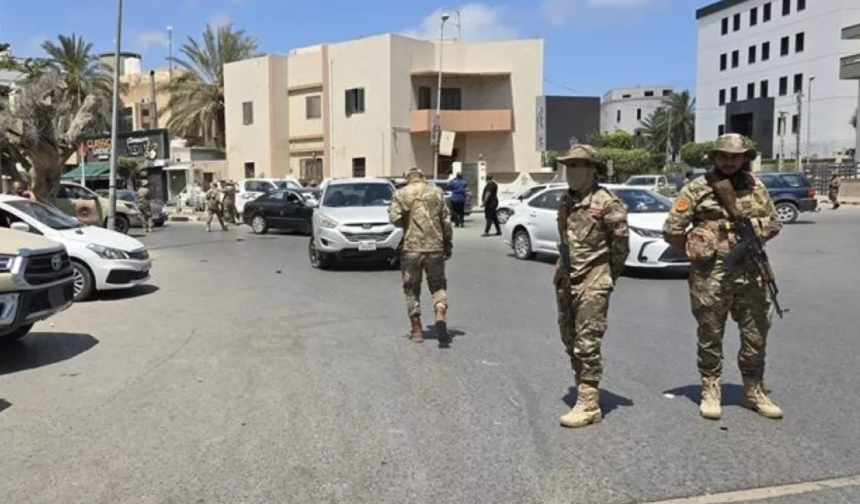The assassination of Abdel Ghani al-Kikli, a prominent militia leader in Libya’s capital, Tripoli, has ignited intense clashes between rival armed groups, resulting in at least six deaths and numerous injuries. The violence underscores the fragile security situation in the city and raises concerns about the potential for further escalation.
Assassination of Abdel Ghani al-Kikli
On May 12, 2025, Abdel Ghani al-Kikli, also known as “Gheniwa,” the commander of the Stability Support Apparatus (SSA), was killed during a meeting at the headquarters of the 444th Combat Brigade in Tripoli. The meeting, intended to de-escalate tensions among armed factions, turned deadly when guards from the rival 444th Brigade exchanged fire outside the gathering. Al-Kikli’s death marked a significant shift in Tripoli’s power dynamics, as he was one of the city’s most influential militia leaders.
Subsequent Clashes and Casualties
Following al-Kikli’s assassination, fierce clashes erupted across Tripoli, particularly in the Abu Salim neighborhood, a stronghold of the SSA. The 444th Brigade, aligned with Prime Minister Abdul Hamid Dbeibah’s Government of National Unity (GNU), launched operations against SSA positions, seizing assets and detaining dozens of fighters. The confrontations resulted in at least six fatalities and numerous injuries, with gunfire and explosions heard throughout the city.
Government Response and Ceasefire
In response to the escalating violence, the GNU deployed neutral police units to key locations to restore order. A ceasefire was declared on May 14, leading to a significant reduction in hostilities. The government also announced plans to dismantle irregular armed groups and appointed a new head of the Internal Security Agency.
International Reactions
The United Nations expressed alarm over the violence, urging all parties to cease fighting and protect civilians. The UN warned that attacks on civilians and civilian infrastructure could constitute war crimes. Other international actors, including Turkey and the United States, have called for restraint and emphasized the importance of political dialogue to resolve underlying tensions.
Implications for Libya’s Stability
The recent clashes highlight the ongoing challenges facing Libya’s efforts to achieve lasting peace and stability. Despite a ceasefire agreement in 2020, the country remains divided between rival administrations and plagued by the influence of powerful militias. The assassination of al-Kikli and subsequent violence underscore the need for comprehensive security sector reform and the integration of armed groups into a unified national framework.
As Tripoli begins to recover from the latest bout of violence, the focus now shifts to ensuring that the ceasefire holds and that meaningful steps are taken to address the root causes of conflict. The international community’s support will be crucial in facilitating dialogue and promoting a sustainable path toward peace in Libya.











